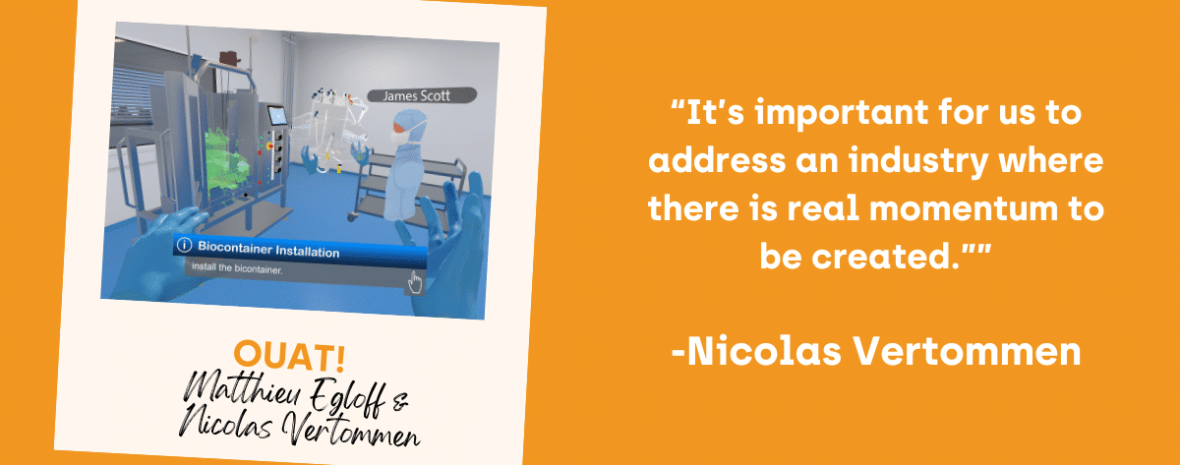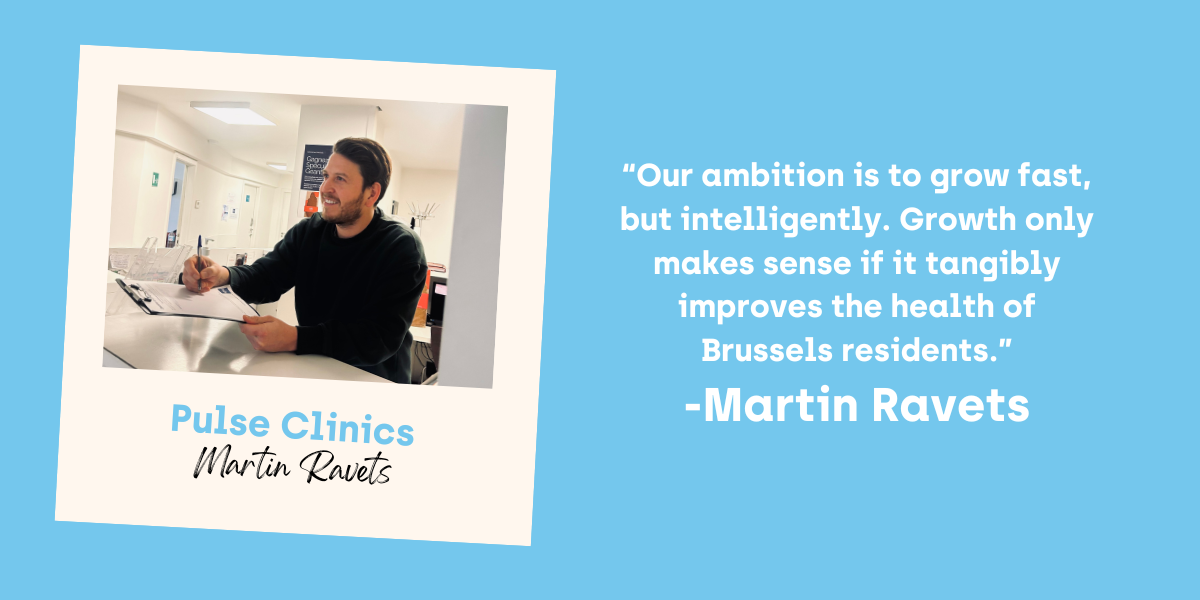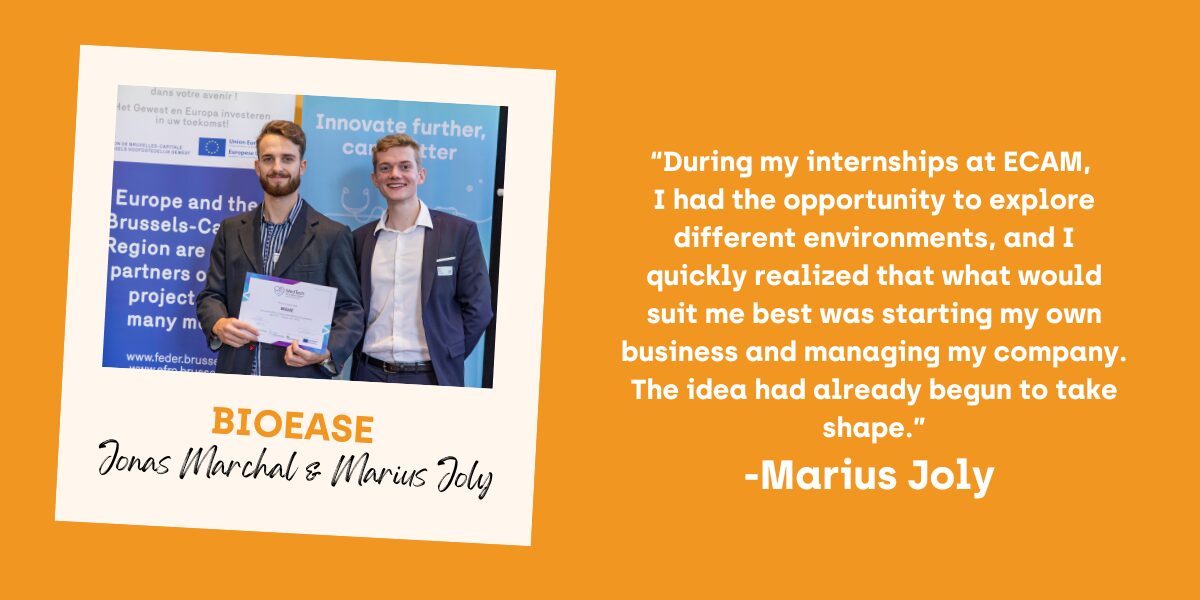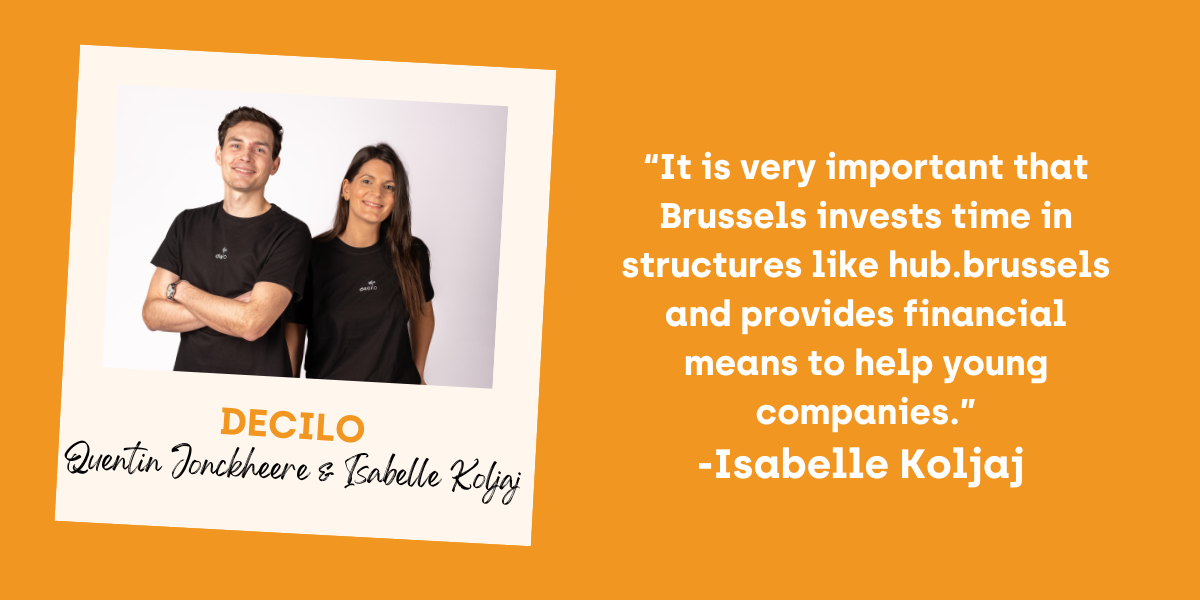What happens when a biochemist, Matthieu Egloff, and a specialist in sales and marketing, Nicolas Vertommen, meet at a company selling equipment for the biopharmaceutical industry? They launch OUAT! and offer industrial players the possibility to create digital twins of their factories and laboratories.
“We noticed that presenting a biotech product to potential clients required a certain level of expertise,” says Nicolas Vertommen. “We wanted to offer a digital service to the industry, introducing something fresh and innovative.”
A digital twin in the making
Back in 2015, this innovation was still in its infancy: virtual reality. “We created a virtual tour of a cell therapy plant to showcase how the therapy was produced,” explains Nicolas. “To do that, we had to model around a hundred pieces of equipment in 3D.”
Inspired by this first achievement and by a well-known Swedish furniture giant’s online 3D tool, the duo thought it was a pity not to make their equipment library available to others. In 2019–2020, two investors, finance&invest.brussels and Innovation Fund, believed in the startup and helped it pivot into a product company.
This is how the HakoBio platform was born. It kept growing, thanks to the trust of its clients and the team of bioengineers who helped ensure that the platform understood the specific needs and language of the field.
The three verticals of HakoBio
Initially, the focus was on simulating industrial environments and expanding the equipment library, which now includes over 3,000 references. “Users can simulate workflows, processes, equipment usage over time, with a particular focus on ergonomics, spatial organization, and optimization,” explains Nicolas.
Next came immersive technologies (VR, mixed reality) integrated into the platform. Training naturally became the next step. “We’re not trying to replace training with VR,” insists Nicolas, “but to enhance existing systems. We allow learners to enter the environment virtually, understand it faster and more effectively. We take inspiration from video games to boost memory retention.”
Finally, the 3D representation or digital twin of the facility represents the culmination of the approach. “This near-realistic 3D rendering, combined with an open platform architecture, allows for seamless interfacing with various data-generating systems—about the product, equipment, process, or facility,” says Nicolas. “Operators can instantly access all the information they need, without digging through multiple, incompatible databases. We were the first and are still the only ones, as far as we know, to offer a solution covering the full lifecycle of a product or plant.”
The pharmaceutical industry, OUAT!’s playground
HakoBio was created specifically to meet the needs of the pharmaceutical industry. “It’s a real playground for us,” observes Nicolas. “Unlike the aerospace industry, which has long embraced VR with flight simulators, pharma still has a major need. We want to be part of an industry where momentum can be built. Other industries like cosmetics, hospitals, or food processing could also use digital twins as they exist today—we’d just need to adjust the database. That’s one of our two-year development goals.”
A true Brussels DNA
Matthieu Egloff and Nicolas Vertommen are proud to be based in Brussels. “I’m a child of the capital,” says Nicolas. “I was born and raised here—it’s my home. The heart of OUAT! is in Brussels and will stay here! Unlike others, we haven’t outsourced anything abroad. There’s enough expertise and talent here to work locally, with better responsiveness, flexibility, and results.”
They also relied early on on Brussels-based support for entrepreneurs. “It goes way back,” Nicolas recalls. “Impulse.brussels (now hub.brussels) was one of our first stops with OUAT! We got help with financial planning, business model validation, and met valuable contacts. Today, we’re part of these networks—Matthieu is on the software cluster board, and I’m part of the lifetech cluster. Even though we work a bit less with hub.brussels now, I’ll soon participate in an export day with Brussels’ economic attachés around the world. The hub.brussels teams are present, responsive, and driven. When facing complex problems, they’re the gateway to connect with the right experts—it’s invaluable.”
Still, Nicolas says HakoBio has already traveled far. Europe is OUAT!’s main market, ahead of North America. “Asia also interests us, though we’re not there yet,” he adds. “We might expand internationally. France is within reach, especially with clients like Sanofi. The US is harder without a local presence.” He concludes philosophically, “No one is a prophet in their own land,” before reassuring: “We will continue growing the Belgian base.”



